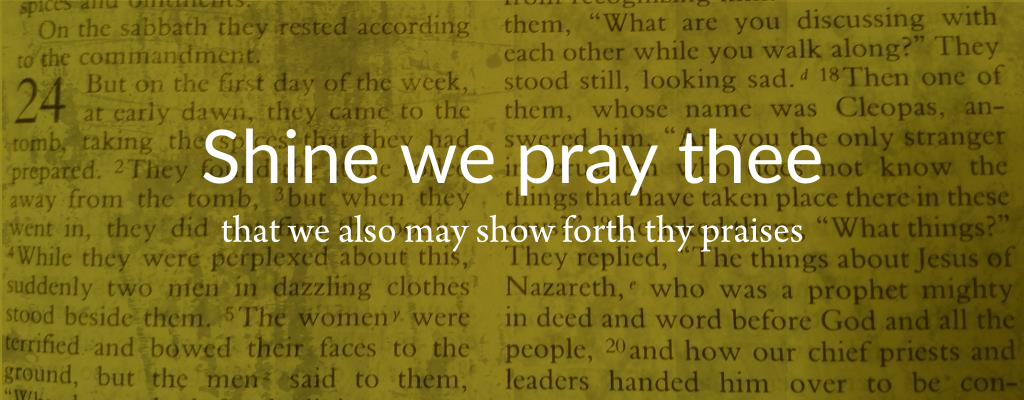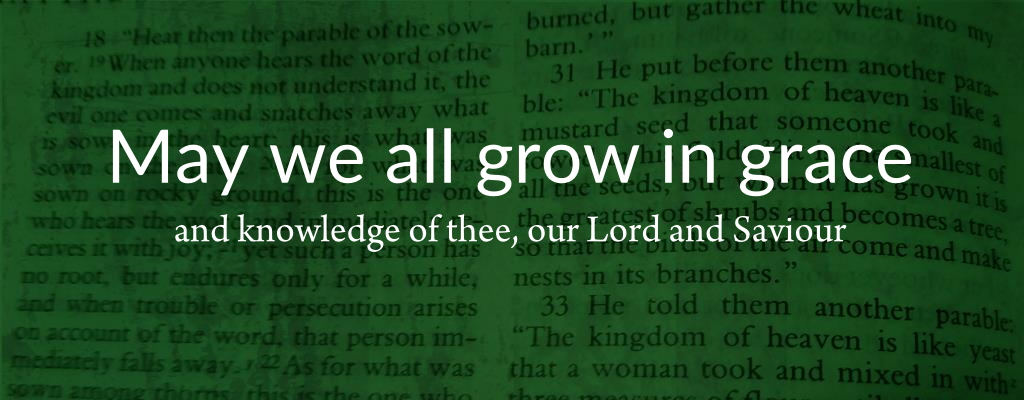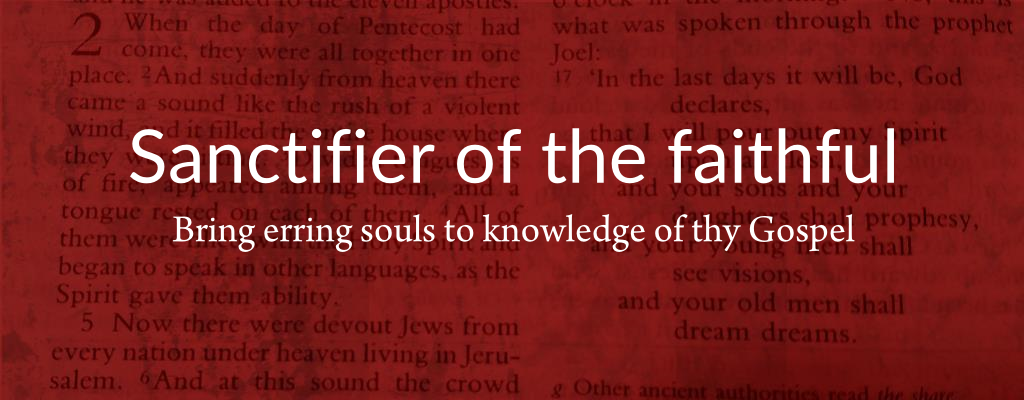News and Articles from the Prayer Book Society
-
When we speak of immanent, we mean that is of the world, what can be directly experience. Transcendent on the other hand speaks to that which is beyond our world. A simple explanation of this is God the Father, who is transcendent, while God the Son in the incarnation of Jesus was immanent.
For many Christians today, their faith is rooted in immanence: in the experiential power and presence of God within their own lives. There is nothing wrong with this, and indeed the witness of this type of immanent experience with God is a powerful tool of evangelism when someone asks why you have faith.
Yet without the grounding of the transcendent God, if our faith is only rooted in what we have personally experienced, it can lead to a shallow faith, the type of faith Christ described in his Parable of the Sower (St Mt 13. 1-9). When you are experiencing the presence of God your faith is strong, but the minute you go through a season of not experiencing that immanent presence of God, like the seeds sown on rocky soil, the faith can be choked out by the lack of deep roots.
It is that attachment to the transcendent God, the willingness to submit our whole lives to him, to love and obey. It is the means by which we grow strong roots to protect us during those dry seasons of our lives. The Book of Common Prayer is a faithful tool for cultivating those roots: providing opportunities for daily Scripture reading, prayers tested and accepted for the orthodoxy of their petitions and numerous other ways of cultivating disciplines in our lives that turn us towards the transcendent God, and seeking to reveal his nature to us so we can live more in his will. Consider reviewing the Short Catechism (BCP, 544) for explanation on some of the key concepts of the Christian faith, or in engaging in daily prayer through the offices of Morning (BCP, 1) and Evening (BCP, 17) Prayer. Pray with your family (BCP, 728) or consider from the list of prayers and thanksgivings (BCP, 37) what prayer might help give voice to the desires and concerns of your heart.
In acknowledging the importance of both that immanent and transcendent relationship with God, we create a dynamic tension in our lives that feeds our faith. The grounding in Truth of our relationship with the transcendent God through his revelation of himself to us, and the grounding of our faith in the assurance provided by the feeling of his power and presence in our lives. This dynamic tension between the two is greatly aided and regulated by using tools like the Book of Common Prayer to help build regular patterns and rhythms to our relationship with God.
As you reflect on your own faith journey, consider the ways in which you are building those strong roots that sustain you during dry seasons of your life, and where your roots need cultivating, consider in what ways the Book of Common Prayer might be the right tool for the job.





Leave a Comment